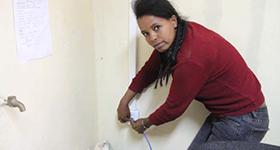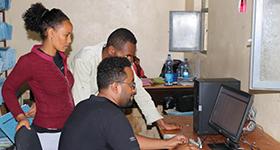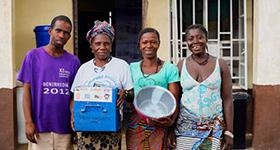Background
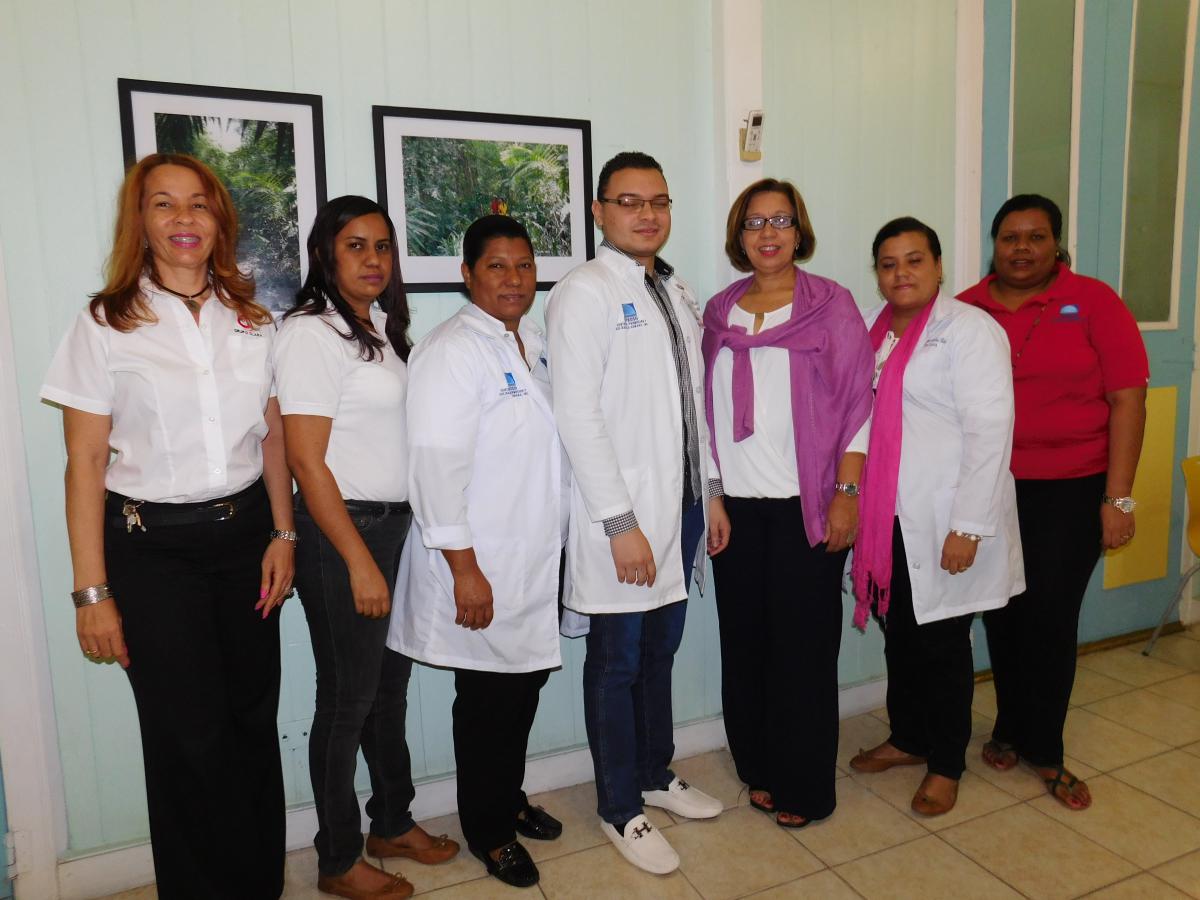
CEPROSH's Quality Management Team.
Juan Carlos is a 26-year-old gay man who started ART three days after being diagnosed with HIV at the Centro de Promoción y Solidaridad Humana (CEPROSH) HIV comprehensive care clinic in Puerto Plata. Roldofe is a 58-year-old migrant worker who lives in the Los Algodones Batey in the same province and, like Juan Carlos, receives HIV services at CEPROSH, including regular refills of his antiretroviral drugs and adherence support. The two men exemplify the importance of the quality management system (QMS) at CEPROSH which facilitates prompt initiation of ART and follow-up to ensure adherence to treatment.
Intervention
Under the Test and START strategy recommended by the World Health Organization, all people who receive an HIV-positive diagnosis should begin antiretroviral therapy (ART) immediately to improve their health outcomes and quality of life, and to reduce the incidence of new HIV infections. Since October 2016, the Advancing Partners & Communities (APC) project has been supporting implementation of Test and START in three provinces of the Dominican Republic—Santo Domingo, La Romana, and Puerto Plata—under the U.S. President’s Emergency Plan for AIDS Relief (PEPFAR) with funding from the United States Agency for International Development.
CEPROSH’s QMS involves staff at different levels in a continuous quality improvement process. "We monitor and analyze the PEPFAR indicators monthly so that we can identify gaps in performance and propose actions to address them," says Fátima Colombo, coordinator of the HIV clinic at CEPROSH. She gives examples of CEPROSH’s quality indicators—the proportion of patients diagnosed with HIV who initiate ART; attend appointments on time; and adhere to treatment—which they also use to measure and improve service quality.
Over the first year of Test and START in the Dominican Republic, CEPROSH has taken the following actions to improve quality of care and achieve the program’s goals:
- Created a provincial level body of government and PEPFAR partners to coordinate implementation of activities.
- Recruited Creole-speaking staff and developed and distributed educational materials in Creole for Haitian migrants.
- Immediate clinical evaluation and laboratory testing to initiate newly diagnosed patients on ART within three days.
- Weekly monitoring of the number of HIV-positive results and patients who have initiated ART.
- Implemented an early warning system to monitor ART patient compliance with scheduled appointments. Daily report of patients who miss appointments or returned late for an appointment identifies those who may have adherence problems and are at risk for treatment interruption.
Outcomes
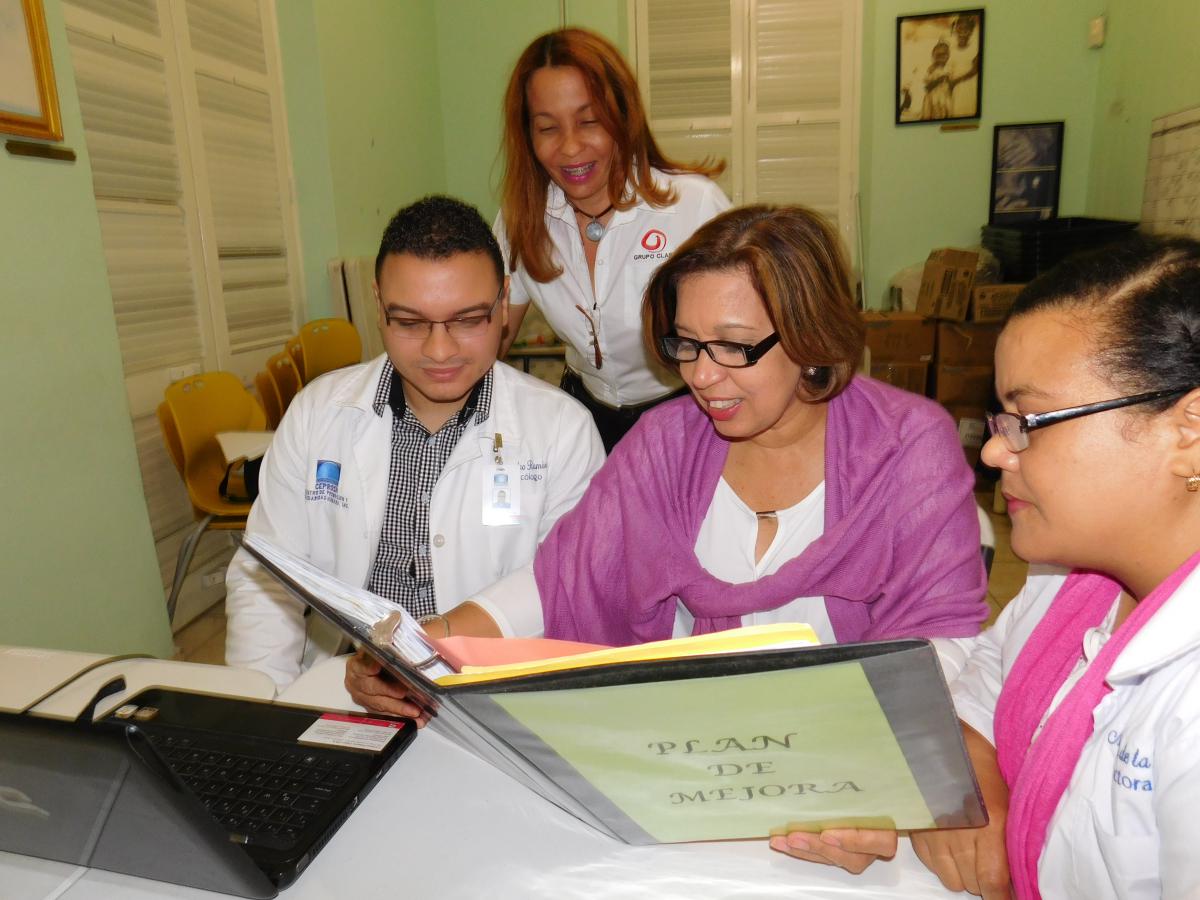
CEPROSH staff with the clinic’s quality improvement plan.
The clinic’s performance from October 2016 to March 2017 shows that the QMS contributed to the following achievements—
- 91% of patients newly diagnosed with HIV were initiated on treatment.
- The overall proportion of patients on ART at CEPROSH increased from 82% to 93%.
- 70% of patients complete their antiretroviral drug refill visits on time.
- A 42% reduction in the number of patients lost to follow up.
- Provision of comprehensive HIV care and treatment services in Spanish and Creole.
- Renovation of the pharmacy area for antiretroviral drugs and a separate waiting room for HIV/TB co-infected patients.
CEPROSH’s QMS and continuous quality improvement processes help ensure that people like Juan Carlos and Roldofe are able to exercise their right to a healthy life through timely HIV diagnosis and immediate access to ART under the Test and START program.


